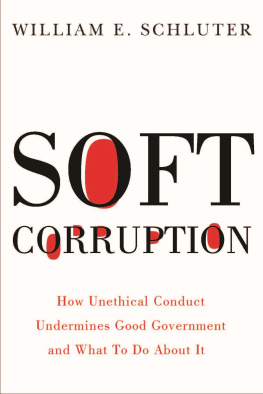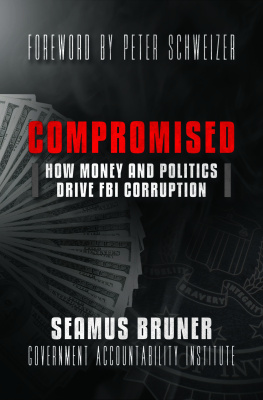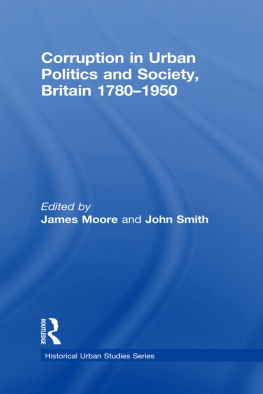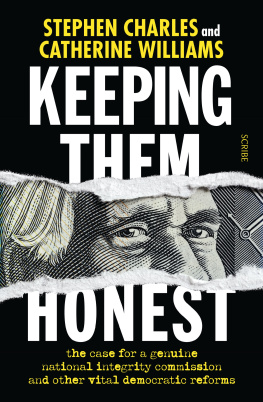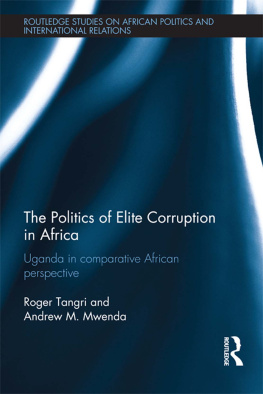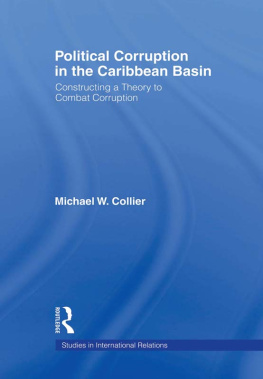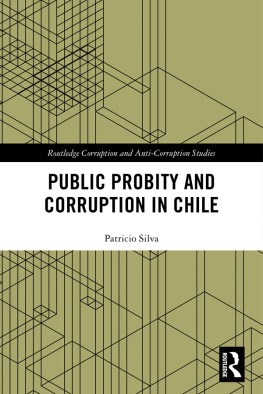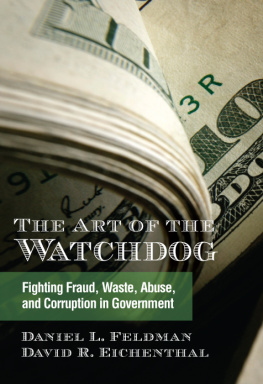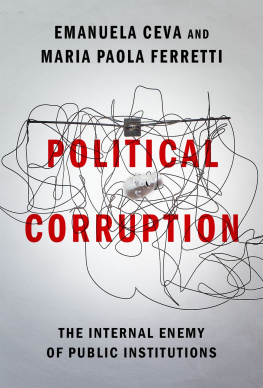Soft Corruption
Rivergate Regionals
Rivergate Regionals is a collection of books published by Rutgers University Press focusing on New Jersey and the surrounding area. Since its founding in 1936, Rutgers University Press has been devoted to serving the people of New Jersey and this collection solidifies that tradition. The books in the Rivergate Regionals Collection explore history, politics, nature and the environment, recreation, sports, health and medicine, and the arts. By incorporating the collection within the larger Rutgers University Press editorial program, the Rivergate Regionals Collection enhances our commitment to publishing the best books about our great state and the surrounding region.
Soft Corruption
How Unethical Conduct Undermines Good Government and What to Do About It
William E. Schluter
Rutgers University Press
New Brunswick, Camden, and Newark, New Jersey, and London
Library of Congress Cataloging-in-Publication Data
Names: Schluter, William E., 1927 author.
Title: Soft corruption : how ethical misconduct undermines good government and what to do about it / William E. Schluter.
Description: New Jersey : Rutgers University Press, 2017. | Series: Rivergate regionals | Includes bibliographical references and index.
Identifiers: LCCN 2016024606 | ISBN 9780813586175 (hardcover : alk. paper) | ISBN 9780813586182 (e-book (epub)) | ISBN 9780813586199 (e-book (web pdf))
Subjects: LCSH: Political corruptionNew Jersey. | Misconduct in officeNew Jersey. | Campaign fundsNew Jersey. | Conflict of interestsNew Jersey. | Patronage, PoliticalNew Jersey. | Political cultureNew Jersey. | New JersyPolitics and government.
Classification: LCC JK3545 .S45 2017 | DDC 320.9749dc23
LC record available at https://lccn.loc.gov/2016024606
A British Cataloging-in-Publication record for this book is available from the British Library.
Copyright 2017 by William E. Schluter
All rights reserved
No part of this book may be reproduced or utilized in any form or by any means, electronic or mechanical, or by any information storage and retrieval system, without written permission from the publisher. Please contact Rutgers University Press, 106 Somerset Street, New Brunswick, NJ 08901. The only exception to this prohibition is fair use as defined by U.S. copyright law.
www.rutgersuniversitypress.org
I dedicate this book and all that it stands for to Samuel A. Alito Sr. In the minds of most Americans, the name Sam Alito connects with the associate justice of the United States Supreme Court. But the Sam Alito I am honoring was his father, who served for many years in charge of New Jerseys nonpartisan Office of Legislative Services and whose influence over the legislature from the 1960s until he retired in 1984 was pervasive and profound.
During this time and under his guidance, New Jersey earned the reputation as having one of the most effective and best-run legislatures in the country. In his position, Sam Alito and his staff researched and drafted all legislation for both the state senate and the general assembly. His abilities and expertise on New Jersey government matters made him an indispensable authority on the Trenton scene.
Sam Alito was more than just a straight arrow and solid researcher. He was a mentor, a total professional who would go the extra mile for any legislator who sought his help. He served as secretary on two of the legislative commissions on which I was appointed: Election Law Revision and County and Municipal Government. The Election Law Revision Commission, guided by its members and Mr. Alito, produced a landmark report in 1975 exposing the way that candidates and political parties were financed in New Jersey as well as how the electoral process was not always managed fairly.
This report and the work of the Commission inspired me to take up the banner of reform, which has been the backbone of my political career ever since. Sam Alito was a major influence, instilling in me the importance of justice, fairness, and integrity in the role of government service.
Contents
Twenty years in the New Jersey legislature, and many more years of activity in local, county, and state politics, gave me a thorough understanding of how government in New Jersey works. And the picture has not been pretty.
This is not to say that all officials are miscreants and that all government activity is shady. Indeed, many go into public office for the right reasons: to serve fellow citizens faithfully, honestly, and efficiently; to try to make life better for everyone; and to carry out the American dream of government of the people, by the people, and for the people. Through the efforts of these well-intentioned officials, government has been able to implement policies to protect precious natural resources, help small businesses to create jobs, support home ownership, expand higher education opportunities, promote public health and safety, and advance other programs for the public good.
But there are lawmakers and public servants who are not so inspired, who spoil it for the rest by gaming the system to reap personal benefits and power. These are the public officials who engage in unethical conduct, activities that break no laws but fail to meet acceptable standards of morality. This is soft corruption.
The history of government is filled with accounts of the corrupting influence of political power. In the words of James Madison, The essence of government is power, and power, lodged as it must be in human hands, will ever be liable to abuse. Events in New Jersey have shown that not all government and political leaders are motivated by altruism and integrity. Rather, many succumb to accommodation, expediency, and then, subterfuge.
The various stories and episodes in this book have been taken from the public record going back fifty years. The ones that draw on my own experiences are limited to those that have special significance in explaining a certain event or activity, and will be so noted.
My commitment to government reform evolved over the years. It started in 1965 when I was picked as the Republican sacrificial lamb to run for state senate against a popular Democratic incumbent whose party dominated the district. I ran a bare-bones campaign, sharply criticizing my opponent who, as a lawyer/legislator, engaged in conflicts of interest (legal at the time) by representing private clients before state agencies. Although I was defeated by more than 22,000 votes, I did earn the endorsement of the Times of Trenton for my efforts at reform.
Later as a legislator, I was appointed to the Election Law Revision Commission, where my eyes were opened to two stark realities: the campaign contribution is a major force in determining government decisions, and the process of selecting candidates to make these decisions is too often manipulated in secret by backroom power brokers. These conclusions were borne out by the words of John Gardner, founder of Common Cause, who said in 1975: The two chief obstacles to responsive government are money and secrecy: the scandalous capacity of money to buy political outcomes, and the bad habit of doing the publics business behind closed doors.
Despite recommendations made by the Election Law Revision Commission in its 1975 report, and by numerous good government groups over the years, almost no serious measures for reform have been adopted into law. Yes, there have been some minor changes, nibbling around the edges but leaving plenty of loopholes. The New Jersey legislature seems intent on maintaining the status quo so that the system will continue to produce for the benefit of those who manage it.

